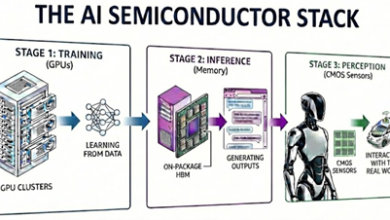
Technology is advancing faster than ever before, reshaping how we live, work, and connect. Artificial intelligence (AI), automation, and data analytics are not only transforming existing industries but also creating entirely new ones. Organizations now rely on intelligent systems to streamline operations, enhance decision-making, and improve customer experiences. This ongoing digital revolution has made advanced technical expertise one of the most valuable assets in today’s job market.
As innovation accelerates, professionals with advanced degrees are finding themselves at the center of opportunity. Specialized graduate programs offer the depth of knowledge and research experience needed to thrive in high-demand roles that require both strategic thinking and hands-on technical ability.
1. Master’s in Artificial Intelligence and Machine Learning
AI and machine learning (ML) are at the heart of the next generation of technology. These disciplines enable computers to learn patterns, make predictions, and even solve problems without explicit programming. A master’s degree in AI and ML provides a deep understanding of algorithms, neural networks, and data processing techniques that power intelligent systems across industries.
Students in these programs learn how to design models capable of recognizing speech, interpreting images, or predicting customer behavior. The knowledge gained is applied in a wide range of sectors, healthcare uses AI for diagnostics, finance relies on it for fraud detection, and manufacturing employs it for predictive maintenance.
2. Master’s in Cybersecurity
The digital world depends on trust, and that trust is constantly under threat. As cyberattacks become more sophisticated, businesses and governments are investing heavily in cybersecurity to protect sensitive data and maintain operational integrity. Graduates learn how to analyze vulnerabilities, respond to breaches, and develop comprehensive security frameworks for complex systems.
With threats to digital security growing every year, a masters in cybersecurity has become one of the smartest ways to advance your tech career. Graduates often move into roles such as security analyst, penetration tester, or security architect, and many rise to executive positions like Chief Information Security Officer (CISO).
3. Master’s in Data Science
Every modern organization relies on data to make decisions. A master’s in data science focuses on transforming raw data into actionable insights that drive performance, innovation, and growth. This degree combines elements of computer science, mathematics, and statistics, providing a well-rounded foundation for interpreting complex datasets.
Students learn how to work with big data frameworks, perform statistical modeling, and use tools like Python, R, and SQL. These skills help businesses forecast trends, improve efficiency, and understand consumer behavior. Data scientists are in high demand across sectors such as e-commerce, healthcare, and logistics.
4. Master’s in Cloud Computing and Information Systems
As companies migrate to digital infrastructure, cloud computing has become essential for efficiency, scalability, and security. A master’s degree in cloud computing and information systems provides the expertise needed to manage complex digital ecosystems that support global operations.
Students explore cloud architecture, virtualization, and DevOps principles while gaining experience with platforms like Amazon Web Services (AWS), Google Cloud, and Microsoft Azure. The coursework emphasizes both technical knowledge and organizational management, preparing graduates to oversee large-scale cloud transitions and optimize digital workflows.
Careers in this field include cloud architect, systems engineer, and DevOps specialist.
5. Master’s in Software Engineering
Software powers nearly every aspect of modern life, from mobile apps and financial systems to healthcare platforms and entertainment networks. A master’s degree in software engineering helps professionals master the process of designing, developing, and maintaining complex systems that meet real-world needs.
Unlike a general computer science degree, this program focuses specifically on the engineering principles behind software development. Students learn advanced programming techniques, agile project management, system testing, and scalable architecture design. They also develop skills in collaboration and communication, which are crucial for managing large development teams.
6. Master’s in Robotics and Automation
Robotics and automation are redefining efficiency and precision across sectors like manufacturing, logistics, and healthcare. A master’s degree in this field combines knowledge from computer science, electrical engineering, and mechanical systems to create machines that can perform tasks with minimal human input.
Students study areas such as control theory, embedded systems, and autonomous decision-making. Many programs include hands-on experience with robotic design, programming, and integration, skills that are essential in industries where automation is key to competitiveness. Robotics is also deeply connected to AI, as smart machines increasingly rely on intelligent algorithms to navigate and respond to complex environments.
7. Master’s in Human-Computer Interaction (HCI)
While advanced technology powers innovation, the way people interact with it determines its success. Human-Computer Interaction (HCI) focuses on creating intuitive, accessible, and engaging digital experiences. This field blends computer science, psychology, and design to ensure technology aligns with human behavior and cognitive processes.
Students in HCI programs learn about user interface design, usability testing, and user experience (UX) research. They study how people perceive, learn, and adapt to digital environments, helping them design systems that are not only functional but also enjoyable to use.
8. Master’s in Information Technology Management
Technology has become the backbone of nearly every organization, and companies need professionals who can connect innovation with business goals. A master’s in Information Technology Management (ITM) prepares graduates to lead digital transformation efforts, manage complex systems, and align technology strategies with broader organizational objectives.
This program blends advanced computer science concepts with management and leadership training. Students explore topics such as IT governance, project management, digital innovation, and enterprise systems. Many programs also include modules on cybersecurity policy, AI-driven decision support, and data management for executives.
The technology sector continues to evolve at an extraordinary pace, and advanced education is key to staying ahead. The degrees highlighted above represent more than academic credentials, they are pathways to innovation, leadership, and long-term relevance in a digital-first world.
Artificial intelligence, cybersecurity, and data science form the backbone of this transformation, while fields like cloud computing, software engineering, and robotics ensure that new technologies are scalable and secure. Meanwhile, Human-Computer Interaction brings the essential human perspective, ensuring that progress remains user-centered and accessible.


